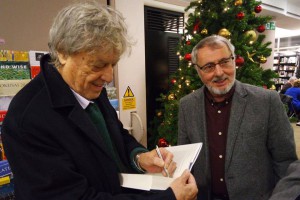Bianca Bellová‘s astonishing novel, The Lake, was originally published in 2017 as Jezero; it has since been translated into two dozen languages, and Parthian came out with Alex Zucker’s compelling English translation in 2022. From the get-go, it was met with an enthusiastic reception, receiving first the Magnesia Litera in 2016, then the European Prize for Literature in 2017, and the EBRD Literature Prize in 2023. Toby Lichtig, chair of the judges for the EBRD prize, describes it as: “utterly propulsive, immersive and unique, [it] deserves to become a European classic, to be read by many generations to come.”
The story unfolds in a small town on the shores of an extremely polluted lake in an unidentified (but possibly) Central Asian country, of an unidentified (but probably) post-Soviet time. The local population is beset by pollution-related cancers and eczema, and hemmed in by outposts of Russian engineers and soldiers. The protagonist, a boy named Nami, is raised by his grandparents, and he sets off across the lake and into a near-by city to find his mother. There are occasional fantastical elements to the story, and, humming with a fusion of Bellová’s ingenuity and Zucker’s playful and electric English, The Lake sets off all sorts of environmental alarm bells. It brings us such an unusual setting and characters that I was eager to learn more about Bellová’s work. Intrigued by Sal Robinson’s excellent interview with the author on Words Without Borders, I was grateful when Bellová kindly agreed to respond to a few questions.
Ellen Elias-Bursać (EEB): I find that the label “dystopian”—frequently applied to The Lake—feels both apt and inapt. The story plays out on the shores of a polluted, shrinking lake, somewhere on the border between the plausible reality of the world as we know it and a dystopian future. Do you feel that the story you tell is dystopian, or is it more about today’s world?
Bianca Bellová (BB): I am a big fan of readers interpreting my books in any way they wish, and I often do find that they discover contexts and meanings I never intended. And that is perfectly fine—it is the way I believe art should work, as a conversation between the piece and the receiving party that should trigger something in the reader/viewer/listener. Something that is already there, but that the creator was never aware of. So when some say “dystopian,” who am I to argue with it? I never thought about a dystopia when writing it; to me it was a struggle of a boy in a harsh world with the little weapons he had. The lake was a backdrop to it, even if a very important one.
There is a lake called the Aral Sea that is very similar to the lake from my book, and it is in a state so much worse than the fictitious one that it simply beats any utopian fiction writing, hands down.






